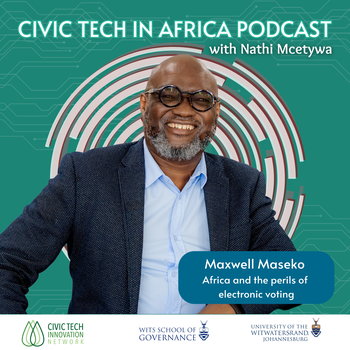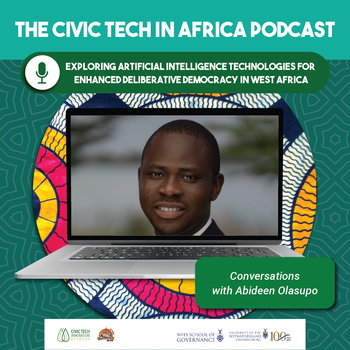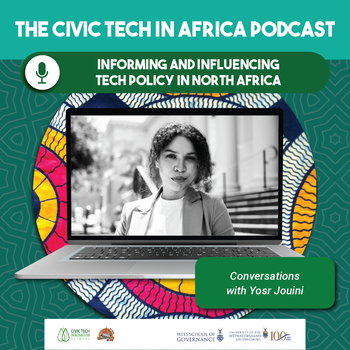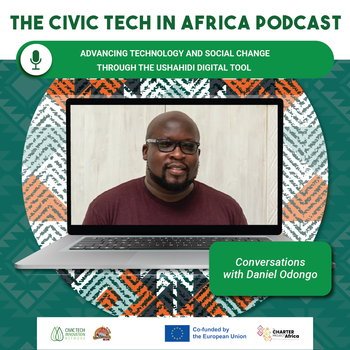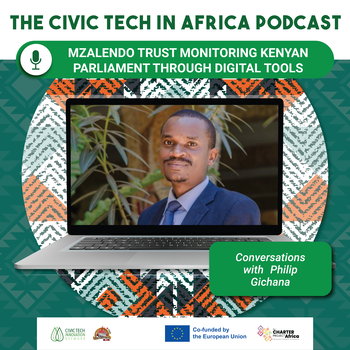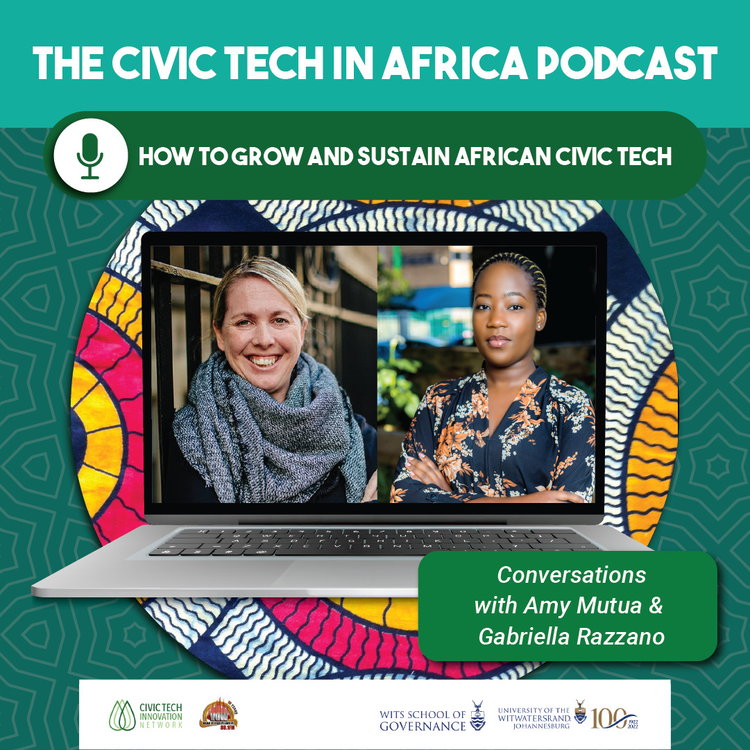
How to Grow and Sustain African Civic Tech | Gabriella Razzano and Amy Mutua
Loading player...
Financing and funding civic technology activities take up a significant portion of most organisations’ worry hours. Often, when there are shortages of funds, this is viewed as an organisational failure. But instead of looking at funding and financing as a reflection of innate value, it should rather be viewed as one of the tools that allow us to reach our social impact. It is a strategic tool that should be considered alongside all of an organisation’s other strategies as well.
In this episode we spoke to Razzano and Amy Mutua about some of the best ways civic tech organisations can go about financing their initiatives.
Gabriella is the Executive Director and Co-Founder of OpenUp, a civic tech lab based in Cape Town. She is also a board member of the Civic Tech Innovation Network. Senior Atlantic Fellow in Social and Income Equality; and an Expert on AI and Democracy for the African AI Observatory.
Amy Mutua is the Research Assistant for the Tayarisha Centre for Digital Governance.
This project is the culmination of ongoing dialogues and research conducted by the Civic Tech Innovation Network (CTIN) which have aimed at exploring financing issues, strategies and models appropriate and applicable for the African civic tech innovation ecosystem.
African civic tech plays a significant role on the continent, but many innovators in the space still struggle with their funding and financing options. In some ways this mirrors challenges in other non-profit and social innovation work, but we think that there are also new, unique challenges.
They created this project to provide a platform for civic tech innovators and organisations across Africa with access to resources, information, and the co-learning networks they may need to help grow and sustain their practice and impact. This site is intended as an interactive, ever-growing space and we encourage you to own, engage and interact with its resources and tools.
And of course (as co-owners!), also let us know how we can improve it so that it is as useful as possible to you and your civic tech peers.
This work contributes to CTIN’s core mission by connecting people and organisations with diverse knowledge, skills, experience and expertise and providing relevant information and insights on civic tech from the African continent and elsewhere. In this way, the innovation network aims to contribute to growing the civic tech community, improving practices and outcomes.
This project was initially funded by CIVICUS – supported by the CHARM project. The microsite is developed by OpenUp.
OpenUp partners with government, organisations, industry leaders and civil society to identify, gather and make accessible information that supports open communities and an empowered citizenry.
Tayarisha is the Initiative on Digital Governance, established (2021) at the University of the Witwatersrand in Johannesburg. It is a hub for teaching, research, policy dialogue, and outreach on the challenges and opportunities presented by digitisation in the public sector, society, and industry in Africa.
The Centre for Digital Governance (CDG) straddles the nexus of government, business, and society, and is concerned with issues of regulation, public policy and ethics. The CDG contributes to the creation of public good by conducting academically rigorous, cutting-edge action research; providing world-class education; and contributing to public debate on the challenges and opportunities presented by digitisation.
In this episode we spoke to Razzano and Amy Mutua about some of the best ways civic tech organisations can go about financing their initiatives.
Gabriella is the Executive Director and Co-Founder of OpenUp, a civic tech lab based in Cape Town. She is also a board member of the Civic Tech Innovation Network. Senior Atlantic Fellow in Social and Income Equality; and an Expert on AI and Democracy for the African AI Observatory.
Amy Mutua is the Research Assistant for the Tayarisha Centre for Digital Governance.
This project is the culmination of ongoing dialogues and research conducted by the Civic Tech Innovation Network (CTIN) which have aimed at exploring financing issues, strategies and models appropriate and applicable for the African civic tech innovation ecosystem.
African civic tech plays a significant role on the continent, but many innovators in the space still struggle with their funding and financing options. In some ways this mirrors challenges in other non-profit and social innovation work, but we think that there are also new, unique challenges.
They created this project to provide a platform for civic tech innovators and organisations across Africa with access to resources, information, and the co-learning networks they may need to help grow and sustain their practice and impact. This site is intended as an interactive, ever-growing space and we encourage you to own, engage and interact with its resources and tools.
And of course (as co-owners!), also let us know how we can improve it so that it is as useful as possible to you and your civic tech peers.
This work contributes to CTIN’s core mission by connecting people and organisations with diverse knowledge, skills, experience and expertise and providing relevant information and insights on civic tech from the African continent and elsewhere. In this way, the innovation network aims to contribute to growing the civic tech community, improving practices and outcomes.
This project was initially funded by CIVICUS – supported by the CHARM project. The microsite is developed by OpenUp.
OpenUp partners with government, organisations, industry leaders and civil society to identify, gather and make accessible information that supports open communities and an empowered citizenry.
Tayarisha is the Initiative on Digital Governance, established (2021) at the University of the Witwatersrand in Johannesburg. It is a hub for teaching, research, policy dialogue, and outreach on the challenges and opportunities presented by digitisation in the public sector, society, and industry in Africa.
The Centre for Digital Governance (CDG) straddles the nexus of government, business, and society, and is concerned with issues of regulation, public policy and ethics. The CDG contributes to the creation of public good by conducting academically rigorous, cutting-edge action research; providing world-class education; and contributing to public debate on the challenges and opportunities presented by digitisation.

